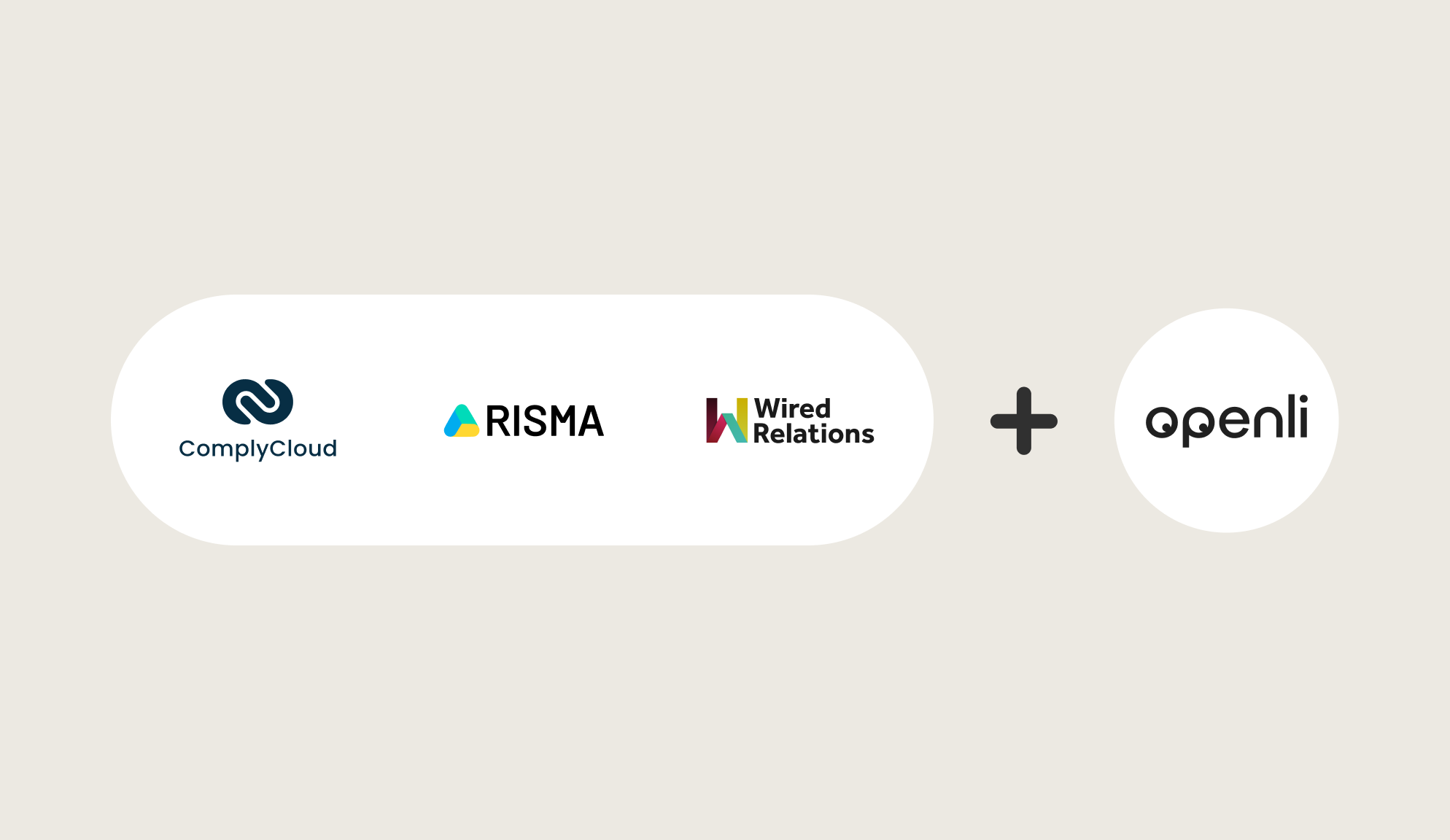ComplyCloud's blog
Expert insights, tips, and guidance that will change how you work with compliance.
.png)
It's official: The new name for the merger of RISMA, Wired Relations, and ComplyCloud is Cerivo.
Newest
Browse all
.png)
Meet Cerivo: The New GRC Brand Uniting RISMA Systems, Wired Relations, and ComplyCloud
It's official: The new name for the merger of RISMA, Wired Relations, and ComplyCloud is Cerivo.

Triple strengthens Nordic GRC leadership with the bolt-on acquisition of Openli
Triple, through its collective ownership of RISMA, ComplyCloud, and Wired Relations, is proud to announce the acquisition of Openli, a leading provider of privacy and vendor compliance solutions.
.png)
“We know that the most compliant - and happiest - customers have an integrated GRC software”
High measurable customer satisfaction forms the foundation for our new GRC solution with RISMA Systems and Wired Relations – read more here.
%20thumbnail.png)
New Nordic GRC Solution Turns Compliance Into a Strategic Advantage for Organizations
Risma, Wired Relations, and ComplyCloud are joining forces to create one GRC solution for the Nordic market. Read about the news.
.png)
What Is an ISAE 3000 Assurance Report and Why Should You get it?
Find out why your IT company can gain greatly from an ISAE 3000 assurance report.

ComplyCloud acquired by international private equity firm as part of GRC trio: “We’re building a powerhouse”
Read the news about Triple Private Equity's acquisition of ComplyCloud here.
Keep exploring
.png)
ISO 27001 checklist
Get our free checklist to meet the 5 key requirements of the ISO 27001 standard.

The Road to Compliance with the EU AI Act
Get insights into best practices for AI Act compliance, and how we help you reach your AI Act compliance.


